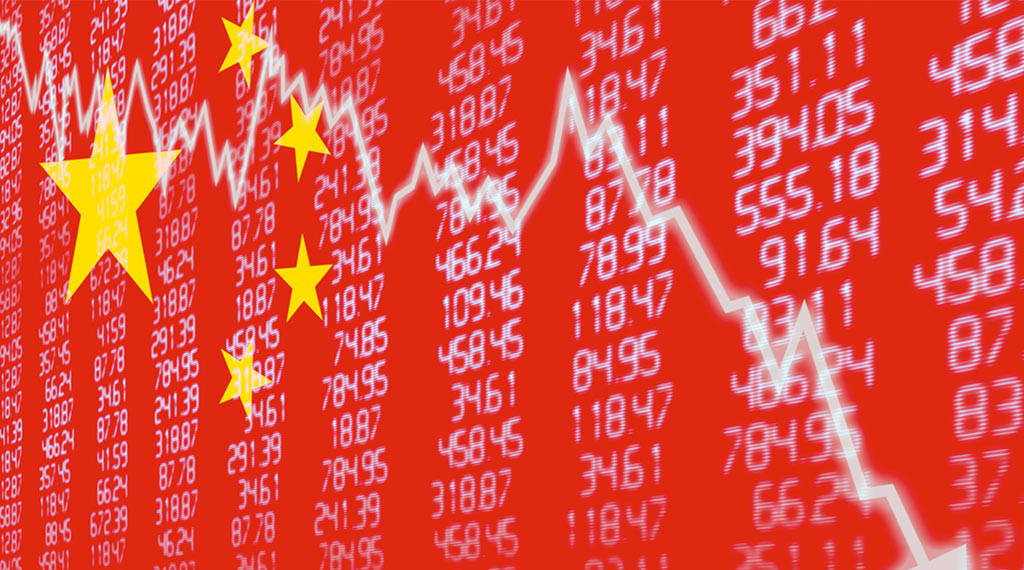
Strategy has a significant number of rules well defined by the geniuses in its pantheon: Sunzi, Sun Bin, Alexander, Caesar, Vegetius, Machiavelli, de Saxe, Frederick the Great, Clausewitz, Jomini, Moltke, Mahan, Lenin, Tukhachevsky, Fuller, Liddle Hart, Mao, Brodie, Kahn. It would not occur to any of these great strategists to advise that the enemy should not be funded from one’s own resources. Great strategists would assume this was self-evident, just as one should not tell the enemy one’s plans.
U.S. policymakers were familiar with this rule during the Cold War, when it would have been unthinkable for the United States to invest in the Soviet Union or permit the USSR to raise capital on U.S. markets. Sadly for U.S. national security, for decades Wall Street has invested in China and permitted Chinese entities access to capital, and the U.S. government has permitted this, even as the U.S. intelligence community has warned that China poses the greatest threat to the United States. They have failed this self-evident rule of strategy.
The situation is getting worse. Millions of U.S. government employees, service members, veterans, and retired federal workers through their retirement savings are funding China. U.S. dollars are invested through the Thrift Savings Plan (TSP), the world’s largest defined contribution fund with over $730 billion, into Chinese Communist Party-controlled companies. As a result, U.S. government employees are funding the expanding power of their enemy.
In June, TSP introduced a new mutual fund window that will permit many participants to invest up to 25 percent of their account in 5,000 different mutual funds. Many of these funds are heavily invested in Chinese Community Party-controlled entities, and also hold shares in entities that are currently or potentially may be subject to U.S. sanctions.
The advocacy group Coalition for a Prosperous America (CPA) examined data of five of the larger international mutual funds and found that these funds were weighted toward Chinese securities. Also identified were companies that face allegations of involvement in the coerced labor of Kazakh, Kyrgyz and Uyghur Muslims in Xinjiang. Lamentably, some companies appeared on the Treasury Department’s list of Chinese Military-Industrial Companies, the Department of Defense Chinese Military Companies list, and the Commerce Department’s Entity List, which identified them as entities tied to the People’s Liberation Army or security services.
The national security concerns are evinced by CPA’s finding that at least five companies on the Defense Department’s list were Aviation Industry Corporation of China and its subsidiaries, which manufactures military aircraft and is valued at about $66.96 billion, or about the same as Lockheed Martin. China General Nuclear Power Group and its subsidiaries, a state-owned nuclear power company, in 2020 was placed on the Entity List for attempted theft of U.S. secrets. Inspur, a cloud-computing company, and subsidiaries is the third largest server manufacturer in the world, and was added to the Defense Department’s list. In 2021, China United Network (formerly China Unicom) was the third-largest wireless carrier in China; it’s on the Treasury and Defense lists.
Known human rights violators are also included within the mutual funds and may be legally liable under the Uyghur Forced Labor Prevention Act. These companies are alleged to have contributed to the construction of the surveillance state within China, the production of goods involving coerced labor, and other support of the genocide against Muslims in Xinjiang. The following companies are alleged to have participated: OFILM Group, a major manufacturer of surveillance cameras deployed in Xinjiang and implicated in coerced labor accusations, leading Apple to cut ties in 2021; Foxconn or Hon Hai Precision, which is alleged to have used coerced labor in Xinjiang; Huafu Fashion, a major subcontractor for well-known brands, sources cotton from Xinjiang, which produces about 20 percent of the world’s supply, and is suspected of employing coerced labor.
This is not the complete review; other Chinese entities are damaging U.S. strategic interests and supporting human rights violations and might receive TSP funds.
- Victory over the PRC: Why engagement makes war with Beijing more likely - April 24, 2024
- The US must end engagement (and Biden’s neo-Engagement) with the PRC now - April 10, 2024
- How to address the CCP threat: Engagement, defeatism, or victory - April 3, 2024
